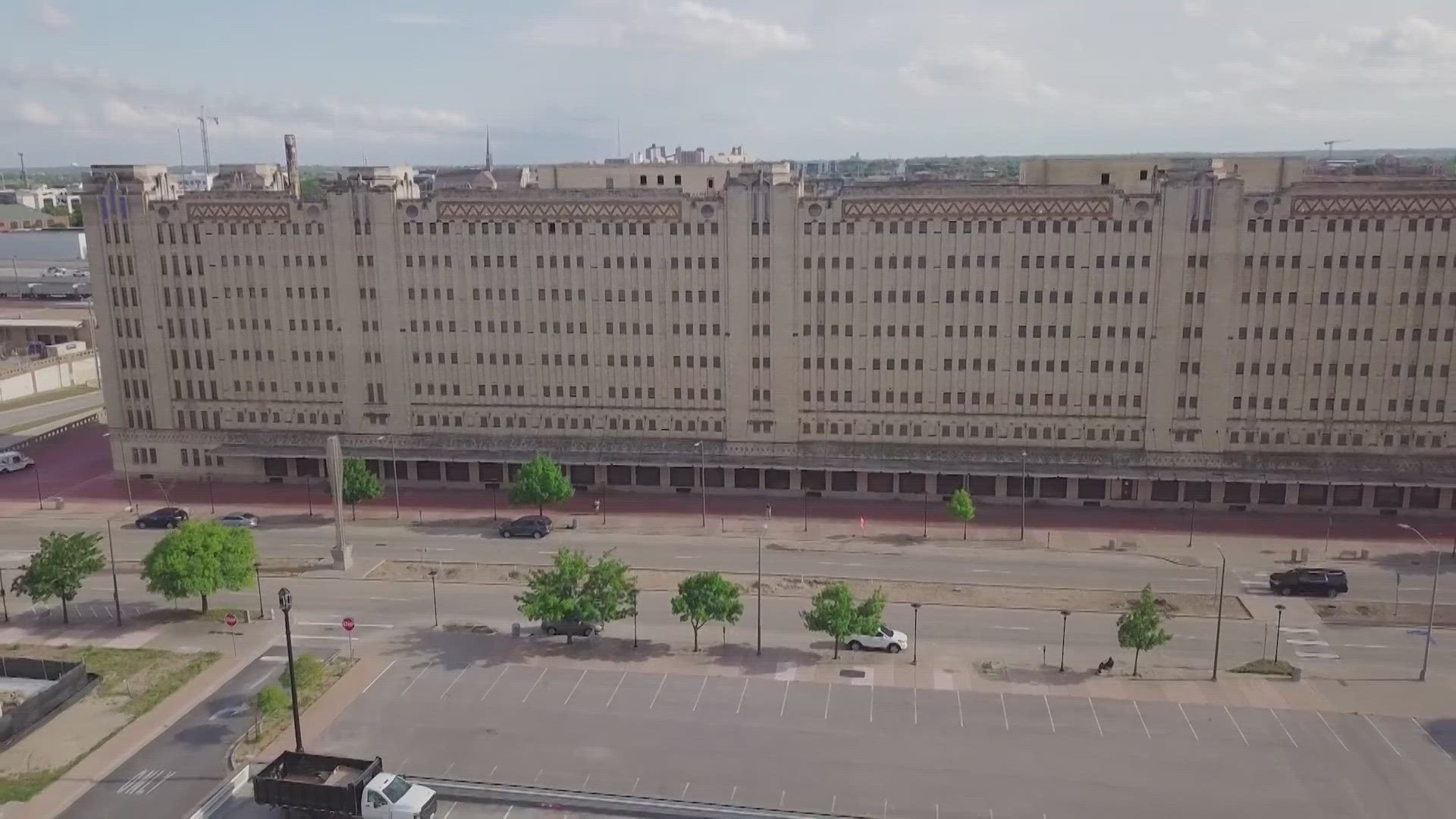FORT WORTH, Texas — Fort Worth city officials are conducting a structural inspection of the landmark Texas & Pacific Warehouse, which has sat vacant for decades.
The inspection could spur long-awaited development of the building and force immediate renovations depending on the findings.
“When I look at this building what I see is opportunity,” Andy Taft, the president of Downtown Fort Worth Inc. said. “Opportunity lost for years, decades really.”
The building on Lancaster Avenue helped jump start Fort Worth’s growth a century ago as part of the T&P railway. Now, it’s holding back the city’s ability to bridge the growth in its South Main neighborhood with the rapidly developing southern part of downtown.
“This is a really exciting part of downtown right now,” Taft said.
Between Texas A&M’s expansion of its law school presence, the city’s convention center arena demolition and exhibit hall expansion, along with the Omni Hotel’s $200 million add-on, southern downtown has around $1 billion of development in its pipeline. The T&P building, though, remains a roadblock.
“We’ve been hoping that something would happen with this building for over 25 years,” Taft said.
Owner Ola Assem acquired the building through the company Cleopatra Investments in 1998, but it has remained vacant since then.
“The building condition is not out of the norm for a vacant building of similar age. However, [we] completed major repair work a few years ago, which was all approved by the city,” Assem said.
Assem rarely speaks publicly about the warehouse but told WFAA in an email she restarted development efforts last July and hopes to begin work on previously approved development plans in the next 6-8 months.
Those plans call for the eastern edge of the building to be a hotel with apartments on upper floors and retail at the bottom. Assem said outside influences for stopping projects planned in the past from moving forward but would not elaborate on specifics.
“In addition to the challenges due to the building size, age and historic preservation, the construction was stopped and delayed several times due to out of owner’s control interruptions and stoppings,” Assem said. “Also, it should be noted that mix use projects are much more complicated to execute than a single use project such as multifamily, office, hospitality, industrial, healthcare, etc., especially when there is no available adjacent parking to serve the retail tenants which requires owner to build parking for all users.”
“It’s been vacant for far too long,” Taft said. “The city has put a lot of incentives on the table and the developer hasn’t found her way clear of doing what needs to be done to redevelop the building
“Everyone’s always curious about the T&P building,” Justin Newhart, Fort Worth’s preservation and design manager, said. “We’ve had years of code compliance issues over there.”
In March, the city hired a contractor to perform a structural inspection of building. It was prompted by noticing new graffiti. The results should come in May and could be key to sparking change.
“It’s such a huge building,” Newhart said. “There’s so much data to go through and analyze.”
Assem has hired well-known architect Michael Bennett to consult. Bennett declined to comment for the story.
“To her credit, the owner has worked with a lot of architects and engineers to understand what it would take to redevelop this building,” Taft said.
“Whether it’s commercial or residential, how do we make it livable and put it back into use?” Newhart said. “There are very clear standards that you have to meet in order to not face a code compliance violation.”
The 90-year-old, eight-story warehouse on a five-acre lot is one of the largest and oldest buildings in the city and most distinct. It’s currently appraised at $1.2 million according to county records.
“The art deco architecture is some of the finest you would see in Fort Worth and the southwest, especially at that scale,” Newhart said. “It’s just a very rare architectural specimen.”
“I’m hopeful that the city’s process will inspire this owner to stop sitting on the building and work diligently and productively to bring it back into production,” Taft said. “We don’t want to see this historic building lost to neglect and demolition by neglect.”
The building that shaped Fort Worth’s future could play that role again.

